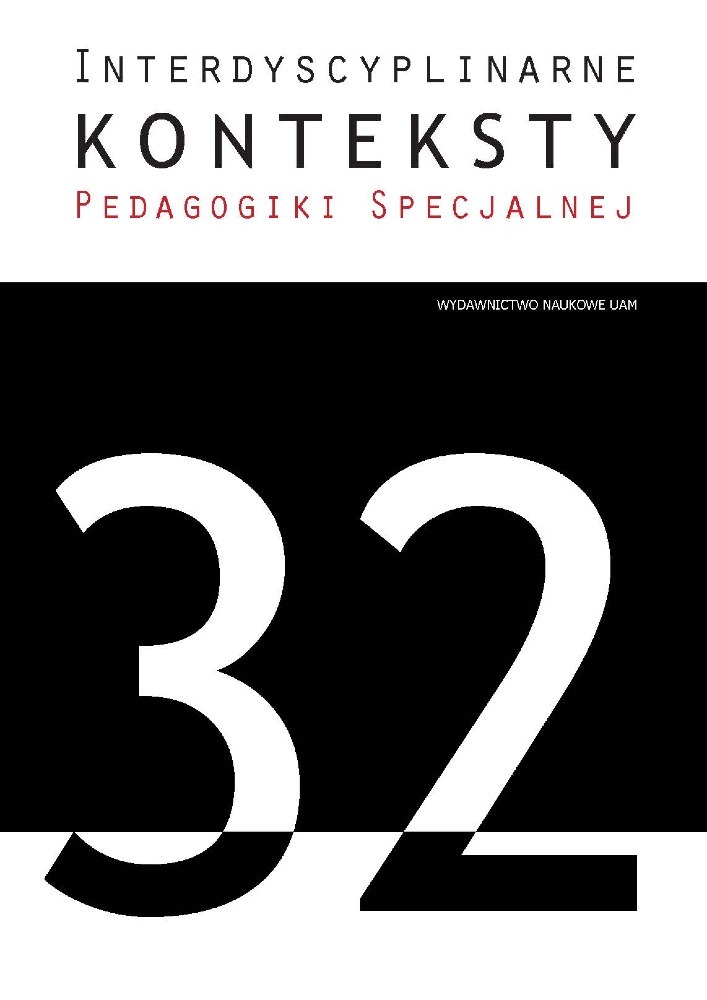Abstrakt
During my neurologopedic work with patients, I often encounter problems with swallowing that coexist with other disorders associated with neurodegenerative and cardiovascular diseases. This article is an introductory report on the research on the impact of swallowing disorders on the functioning of individuals in the family and society. The described case study concerns a patient with additional health conditions, in whom swallowing disorders (dysphagia) are a consequence of damage to the Central Nervous System (CNS), more specifically cerebrovascular diseases. The article was written on the basis of medical documentation kept from the beginning of the disease, consultations with specialists, as well as an interview with the patient’s family. A key role was also played by neurologopedic diagnosis and subsequent research conducted during the therapy, which allowed for the proper selection of therapeutic agents, proved the efficiency of the therapy, both in the neurological and social sphere.
Bibliografia
Chaudhury A., Mashimo H., (2015), Zaburzenie motoryki jamy ustno-gardłowej oraz przełyku, Boston 2015.
Czernuszenko A., (2013), Główne objawy dysfagii w badaniach instrumentalnych, Warsaw.
Dysphagia Outcome Severity Scale (DOSS) (O’Neil 1999), accessed on 12.01.2019. Webpage: http://polykanie.reisspartners.pl/images/pdf/DysphagiaOutcomeSeverityScale_pol.jpg
Gatkowska I. (2012), Diagnoza dyzartrii u dorosłych w neurologii klinicznej, Carcow.
Halama A.R., (1995), Kliniczne podejście otolaryngologa do chorego z dysfagią, [in:] Otolaryngologia Polska, vol. XLIX, Warsaw.
Logemann A. Jeri (1995), Evaluation and Treatment of Swallowing Disorders [in:] Folia Phoniatrica Logopedica, 47, 3.
Logemann A. Jeri, Pauloski B. R.., Rademaker A.W., Kahrilas J. (2002), Oropharyngeal
swallow in younger and older women: videofluoroscopic analysis, Chicago.
Logemann J. A. (2005), Management of dysphagia after stroke [in:] Recovery after Stroke, Cambridge.
Obrębowski A., Wiskirska-Woźnica B., Obrębowska Z. (2012), Zaburzenia połykania w praktyce neurologopedycznej [in:], Wprowadzenie do neurologopedii, Poznań.
Olszewski J., Zielińska-Bliźniewska H., Pietkiewicz P., (2011), , Dysphagia as interdiscyplinary diagnistic and therapeutic problem, Łódź.
Prosiegel M. (2002), Praxisleitfaden Dysphagie, Hamburg.
Rosien U., Andersen V., Layer P. (2010), Objawy gastroenterologiczne i ich leczenie. Dysfagia., Warsaw.
Rosien U., Andersen V., Layer P., (2013), Objawy gastroenterologiczne i ich leczenie. Dysfagia, [in]: Gastroenterologia praktyczna Volume I, Wrocław.
Stręk P., Gawlik J., Składzień J. and others, (2003), Ankietowa samooocena zaburzeń połykania i jakości życia u chorych leczonych z powodu nowotworów głowy i szyi, [in:] Warsaw.
Terlikiewicz J., Makarewicz R., (2003), Zaburzenia połykania. Bydgoszcz.
Waśko-Czopnik D., Paradowski L., (1999), Dysphagia in clinical practice, Warsaw.
Wiskirska-Woźnica B., Obrębowski A., Żebryk-Stopa A., (2012), Rehabilitacja zaburzeń połykania, [in:] Wprowadzenie do neurologopedii, Poznań
Wiskirska-Woźnica B., Proszkiewicz A., Walczak M. (2002) , Zaburzenia połykania – postępowanie diagnostyczne i zasady rehabilitacji, [in:] Przewodnik lekarski, Poznań.
Wojtczak A. (1995), Choroby wewnętrzne, vol. 2, Warsaw.
